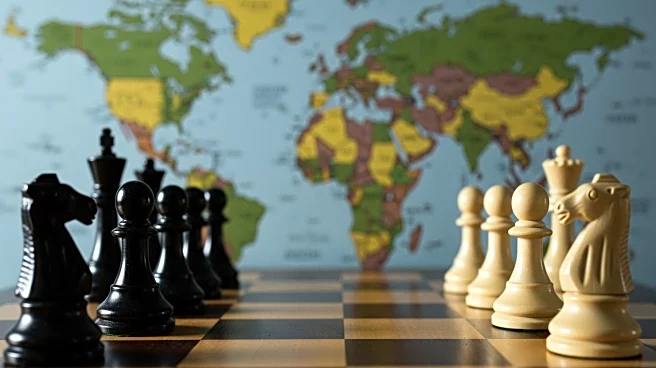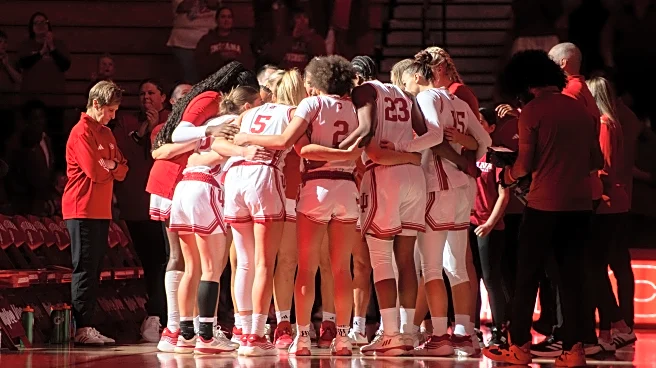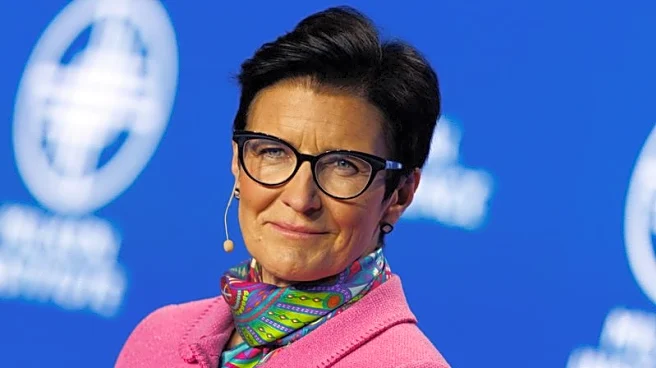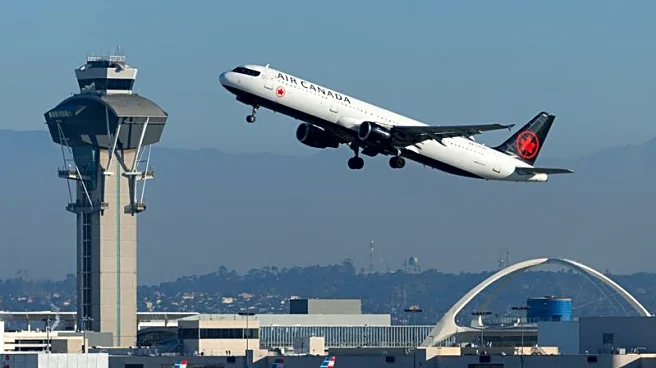What's Happening?
President Trump is encountering difficulties in arranging a meeting between Russian President Vladimir Putin and Ukrainian President Volodymyr Zelensky. Despite initial agreements during a summit in Alaska, the Kremlin has not confirmed the meeting. Trump, in a Fox & Friends interview, expressed uncertainty about the meeting's occurrence, stating that the decision ultimately lies with Putin and Zelensky. White House Press Secretary Karoline Leavitt indicated that preparations for the meeting are underway, but Russian Foreign Minister Sergey Lavrov emphasized the need for extensive groundwork before any high-level meetings. Lavrov also warned against using such meetings for media propaganda. Former U.S. Ambassador to NATO, Ivo Daalder, expressed skepticism about the meeting, citing Putin's historical reluctance to engage with Zelensky.
Why It's Important?
The potential meeting between Putin and Zelensky is significant as it could influence the ongoing conflict in Ukraine. A successful dialogue might lead to security guarantees that prevent further Russian aggression. However, the lack of confirmation from Russia highlights the complexities of international diplomacy and the challenges in negotiating peace. The situation underscores the delicate balance of power and the strategic interests of the involved nations. The U.S. and its allies have a vested interest in stabilizing the region, and the outcome of these diplomatic efforts could impact global security dynamics and U.S. foreign policy.
What's Next?
The next steps involve continued diplomatic efforts by the U.S. to facilitate the meeting. The Trump administration, through special envoy Steve Witkoff, is coordinating with both Russia and Ukraine. The outcome of these efforts remains uncertain, with potential implications for U.S. involvement in European security. The international community will be closely monitoring the situation, as any progress or setbacks could influence future diplomatic strategies and alliances.
Beyond the Headlines
The broader implications of this diplomatic effort include the potential reshaping of U.S.-Russia relations and the strategic landscape in Eastern Europe. The situation also raises questions about the effectiveness of international diplomacy in resolving conflicts and the role of media in shaping public perception. The outcome could set a precedent for future negotiations involving major global powers.










